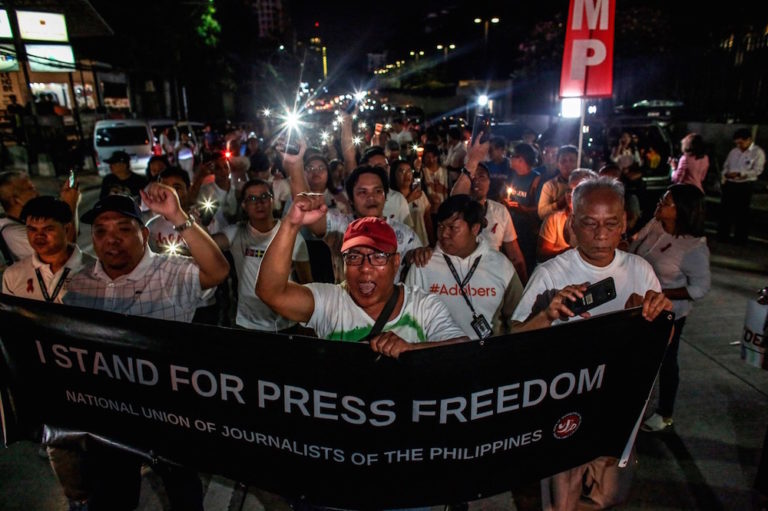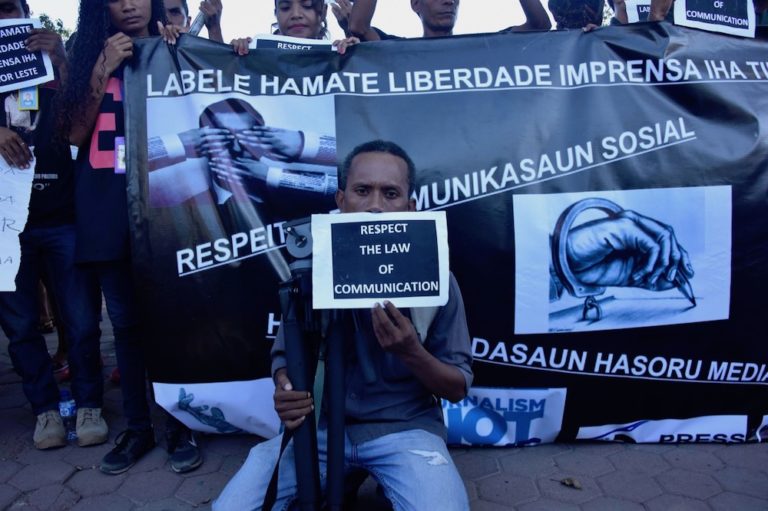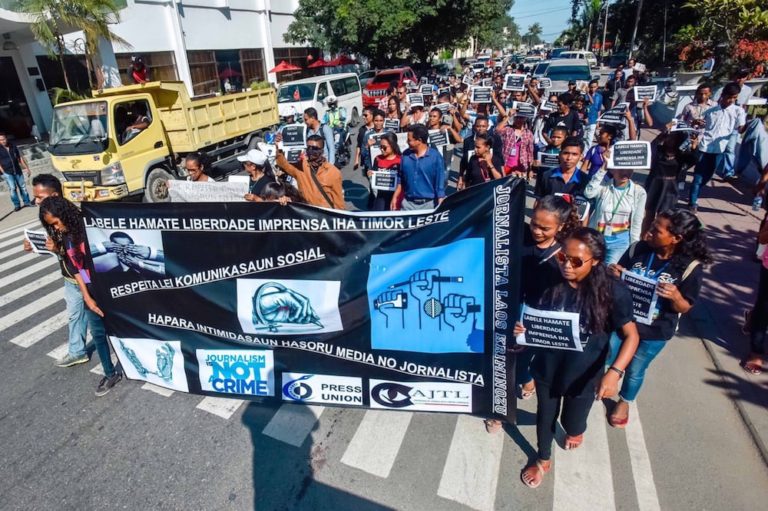(ARTICLE 19/IFEX) – The following is an ARTICLE 19 press release: 25 February 2002 – for immediate release ARTICLE 19 CRITIQUES FREEDOM OF EXPRESSION PROVISIONS IN DRAFT CONSTITUTION FOR EAST TIMOR ARTICLE 19 today released an analysis of provisions in the draft Constitution of the Democratic Republic of East Timor which affect freedom of expression.(1) […]
(ARTICLE 19/IFEX) – The following is an ARTICLE 19 press release:
25 February 2002 – for immediate release
ARTICLE 19 CRITIQUES FREEDOM OF EXPRESSION PROVISIONS IN DRAFT CONSTITUTION FOR EAST TIMOR
ARTICLE 19 today released an analysis of provisions in the draft Constitution of the Democratic Republic of East Timor which affect freedom of expression.(1) ARTICLE 19 welcomes the process towards adopting a constitution for East Timor, which will pave the way for Presidential elections and then full, official independence. However, it is of crucial importance that human rights are adequately protected in the new constitution, since this will be very difficult to change later. Unfortunately, the protection currently afforded to freedom of expression is seriously deficient.
The ARTICLE 19 analysis notes a number of shortcomings in the constitutional protection for freedom of expression. The most important of these is the very wide scope the constitution allows for governments to restrict the right to freedom of expression. As it stands, almost any restriction which is set out in law would be permissible. This could be abused, for example to prevent criticism of officials or government policy. Under international law, restrictions need to be necessary to protect a legitimate interest, such as national security or public order. This prevents abuse by the government of the power to enact restrictions.
Other problems with the Constitution as it stands include the limited definition of freedom of expression, the lack of protection for freedom of opinion and the fact that only citizens are protected.
Toby Mendel, Head of the ARTICLE 19 Law Programme, says:
“We hope the authorities in East Timor take advantage of this opportunity to provide full constitutional protection for freedom of expression. In its current form, the Constitution permits restrictions that would largely undermine this right. A future government could abuse this power to limit the freedom of journalists to report in the public interest.”
1. Copies of the analysis are available on the ARTICLE 19 website, at http://www.article19.org/docimages/1270.doc


